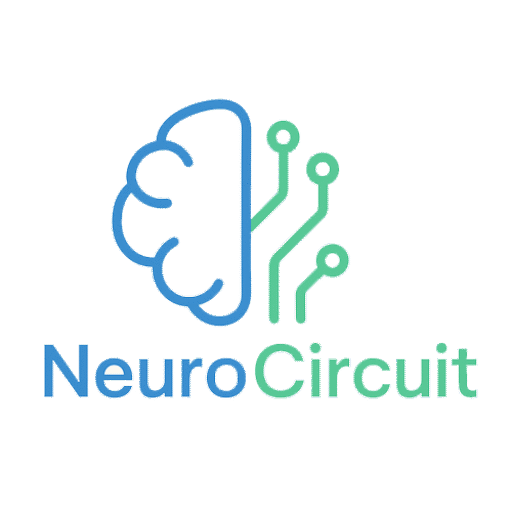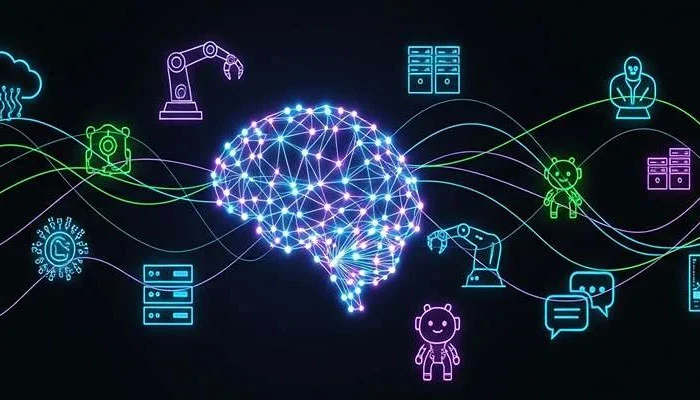Internet of Things, The latest trainings
Building a Competitive Edge: The Strategic Importance of AI in IoT Data Management
Integrating AI with IoT Data Management: Driving Efficiency and Competitive Advantage
In today’s rapidly evolving technological landscape, organizations are increasingly turning to the Internet of Things (IoT) to harness data for improved decision-making, operational efficiency, and enhanced customer experiences. However, the sheer volume of data generated by IoT devices can be overwhelming. This is where artificial intelligence (AI) comes into play, offering innovative solutions for managing and analyzing vast amounts of data. By integrating AI into IoT data management, businesses can gain a competitive edge that is not only strategic but also essential for long-term success.
You can listen to the podcast on this topic at the bottom of the article.
The convergence of AI and IoT represents a paradigm shift in how data is processed and utilized. Traditionally, IoT data management involved collecting data from devices, storing it, and performing basic analytics. This approach, while functional, often falls short in extracting meaningful insights from the data. AI enhances this process by enabling more sophisticated analytics, predictive modeling, and real-time decision-making capabilities. As a result, organizations can leverage their IoT data more effectively, transforming it into a valuable asset rather than just a byproduct of device connectivity.
One of the primary benefits of integrating AI into IoT data management is the ability to automate data processing. AI algorithms can analyze data streams in real-time, identifying patterns and anomalies that would be nearly impossible for humans to detect manually. For instance, in manufacturing, AI can monitor equipment performance data to predict failures before they occur, allowing for proactive maintenance. This not only minimizes downtime but also extends the lifespan of machinery, leading to significant cost savings.
Moreover, AI enhances the ability to derive actionable insights from IoT data. By employing machine learning techniques, organizations can build models that learn from historical data and make predictions about future trends. For example, in the retail sector, AI can analyze customer behavior data collected from IoT devices, such as smart shelves and connected payment systems, to optimize inventory management and personalize marketing strategies. This level of insight enables businesses to respond swiftly to changing market conditions, ultimately improving customer satisfaction and loyalty.
AI-Powered IoT Security: Protecting Data and Preventing Cyber Threats
Another critical aspect of AI in IoT data management is its role in enhancing security. With the proliferation of connected devices, the potential for cyber threats has increased exponentially. AI can bolster security measures by monitoring network traffic for unusual patterns that may indicate a breach. Additionally, AI-driven systems can automatically respond to threats, isolating compromised devices and mitigating risks in real-time. This proactive approach to security not only protects sensitive data but also instills confidence in customers, knowing that their information is safeguarded.
Furthermore, the integration of AI in IoT data management can facilitate better resource allocation. Organizations can use AI to analyze data related to energy consumption, supply chain logistics, and workforce productivity. By identifying inefficiencies and areas for improvement, businesses can make informed decisions about resource allocation, ultimately driving down costs and increasing profitability. For instance, smart buildings equipped with IoT sensors can utilize AI to optimize energy usage, reducing waste and lowering utility bills.
However, while the benefits of AI in IoT data management are clear, organizations must also navigate several challenges. One significant hurdle is the need for high-quality data. AI algorithms are only as good as the data they are trained on. If the data collected from IoT devices is noisy, incomplete, or biased, the insights generated may be flawed. Therefore, businesses must invest in data governance practices to ensure the integrity and quality of their data.
How to Overcome AI and IoT Integration Barriers in Legacy Systems
Another challenge is the complexity of integrating AI solutions into existing IoT infrastructures. Many organizations may find themselves with legacy systems that are not compatible with modern AI technologies. This can create barriers to adoption and limit the potential benefits of AI in IoT data management. To overcome this, companies should consider a phased approach to integration, starting with pilot projects that allow them to test AI capabilities before scaling up.
Moreover, there is the issue of skills and expertise. The successful implementation of AI in IoT data management requires a workforce that is proficient in both fields. Unfortunately, there is a shortage of professionals with the necessary skills to bridge the gap between AI and IoT. Organizations may need to invest in training and development programs to upskill their employees or partner with external experts to fill this gap.
As organizations work to build a competitive edge through AI-enhanced IoT data management, they must also consider ethical implications. The use of AI raises questions about data privacy, surveillance, and bias. Businesses must be transparent about how they collect and use data, ensuring that they comply with regulations and maintain customer trust. Implementing ethical AI practices will not only mitigate risks but also enhance brand reputation in an increasingly conscious consumer landscape.
In conclusion, the strategic importance of AI in IoT data management cannot be overstated. As businesses seek to navigate the complexities of a data-driven world, the integration of AI offers a pathway to unlocking the full potential of IoT data. From automating processes and enhancing security to optimizing resource allocation and driving innovation, AI provides organizations with the tools they need to stay ahead of the competition. However, success in this endeavor requires a thoughtful approach that addresses challenges related to data quality, integration, skills, and ethics. By embracing AI in their IoT strategies, organizations can not only build a competitive edge but also position themselves for sustained growth and success in the future.
Join our newsletter to get the latest projects, tutorials, and tech updates straight to your inbox! 🚀
I recommend listening to the following podcast as well, which is related to this article.

